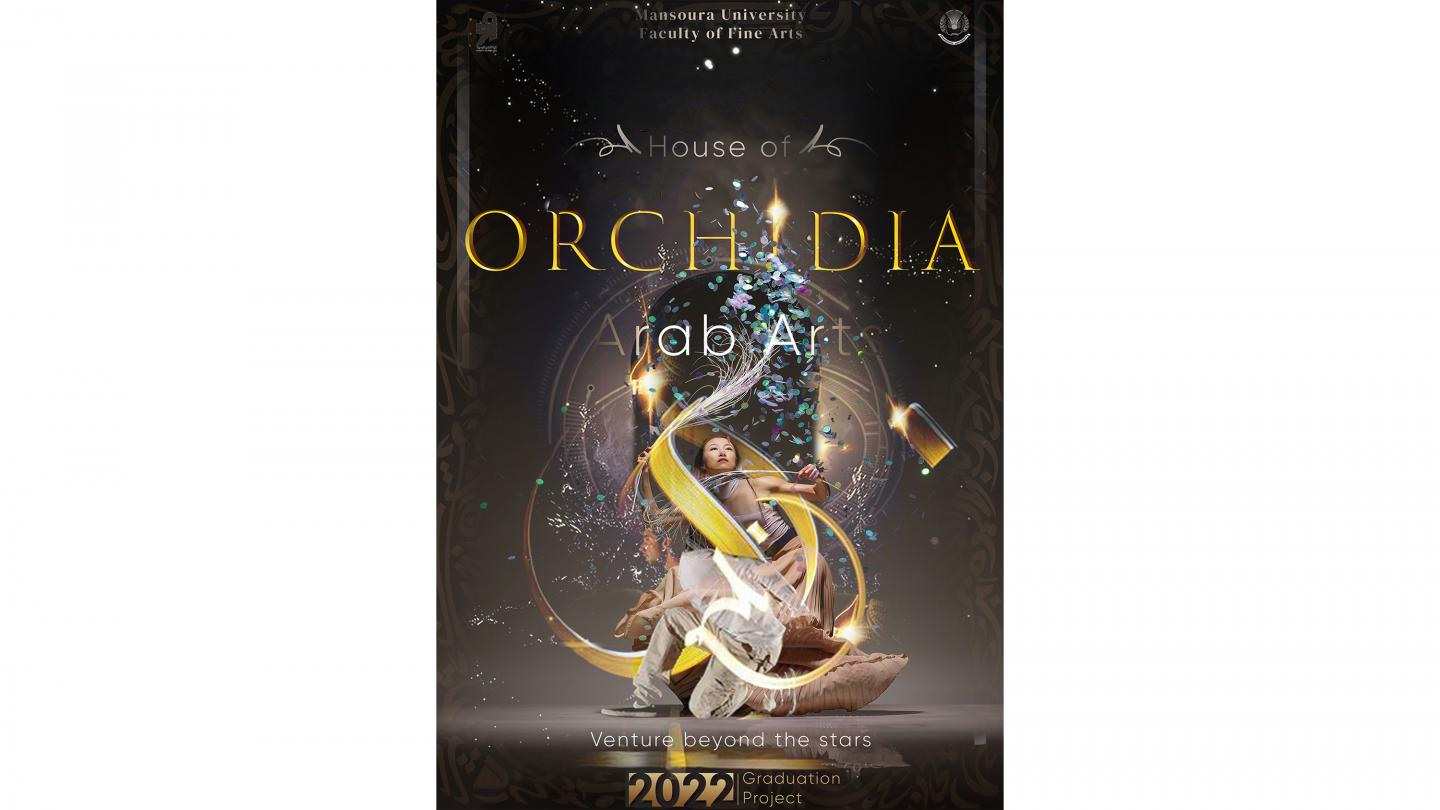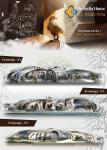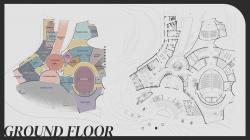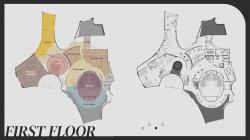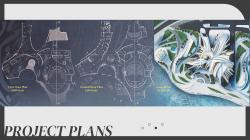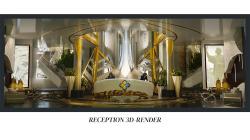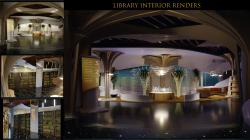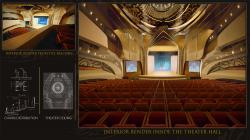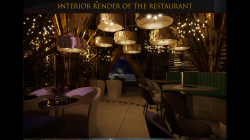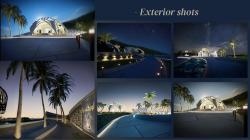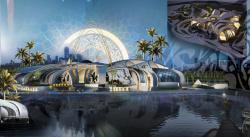Project title: (Orchidia House of Arab Arts)
About the project:
As His Eminence Sheikh Muhammad Hassan said:
“There is no present for a nation that is ignorant of its past... and there is no future for a nation that forgets its virtues”.
Therefore, the subject of the project is the interest in the ancient Arab heritage, which faces many problems at this time, including the multiplicity of opinions and the loss of identity.
The originality of the Arab heritage was combined with the modern character of interior design, such as used in international projects such as: (Expo 2020 - Museum of the Future in Dubai and others).
The philosophy behind the design:
- Shedding light on modern interior design and clarifying its distinctive features and the modern philosophy followed in designing its interior spaces, with a focus on linking functional dimensions and the aesthetic values of the ancient Arab heritage.
- Shedding light on the performing Arab arts (poetry recitation and Arabic literature, Arabic tawshih, chants...etc) due to the lack of sufficient interest in them in Egypt and the lack of places designated for their dissemination. Therefore, the interest in this heritage was through designing a theater dedicated to this type of art.
- Only art can unite people of different orientations, and it is a language that everyone understands. The arts can build bridges for communication between different human civilizations.
Design idea:
The design idea is the result of studying the history of Arab heritage and its many arts and its association with architecture throughout history to create a cultural artistic facility capable of launching a contemporary Arab cultural renaissance at a time when there is a struggle for identity.
The concept revolves around:
(The orchid flower)
- In the Arabic language جذر [(ركيد)، (عنى)، (كلم)], it means: root, so it indicates the value and solidity of the heritage of Arab arts.
- It is one of the stories of kingdoms in Arab mythology.
Design lines:
- The design is a combination of Arabic calligraphy (Al-Tughra line) and contemporary treatments for interior design to give an aesthetic luster to the spaces and show the possibility of using it as an element of aesthetic value in the interior design.
- Using other inspirations from the lines of the orchid and arab distinctive elements such as the desert dunes.
- The design is a combination of wavy and angular shapes, symbolizing the fluid movement of sound and the movement of Arabic calligraphy.
Project Location:
New Administrative Capital, Egypt.
2022
The treatments used in the project:
1- Design treatments:
- The design is a combination of wavy and angular shapes, symbolizing the fluid movement of the sound and movement of Arabic calligraphy (tughra).
- Design is developed through paper models and sketches.
- A stainless steel reflective surface radiates light as an architectural medium.
- Signs and instructions have been used to facilitate the experience for visitors.
2- Interactive treatments:
In theaters:
- Using the 3D holo-net to give effects on stage.
- Using LED screens for presentations.
- Using sensors in the walls to monitor and control sound performance.
- Using moving walls to control the sound quality according to the show.
Materials used in the project:
1- Space Frame: a rigid, lightweight, truss-like structure constructed from interlocking struts in a geometric pattern. Space frames can be used to span large areas with few interior supports.
2- CELLON: a material made of cellulose and phenolic resin, is highly resistant against a wide range of influences such as weather but also to light, scratching, or bumping.
3- Egyptian Onyx Marble: High-quality marble with unique colors.
4- The walls and ceiling of the auditorium are finished in Douglas pine.
5- The floor is finished in oak wood.
6- The side walls are made of a sound-dispersing material with sound-absorbing spaces.
7- Using acoustic panels as an insulating material to keep the sound inside the hall.
Designed by:
Amir Reda Radwan
Under the supervision of:
Professor Dr. Omar Ghoneim
Dr. Heba Hamdy
